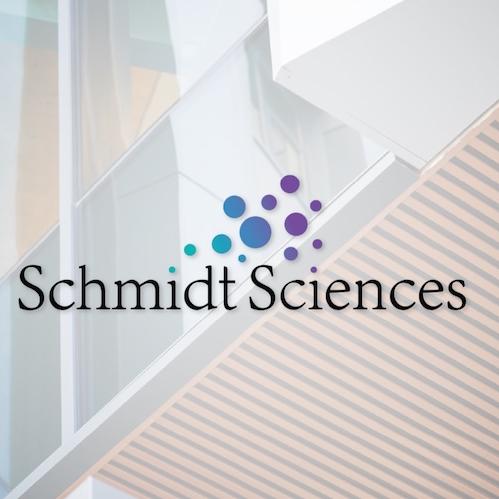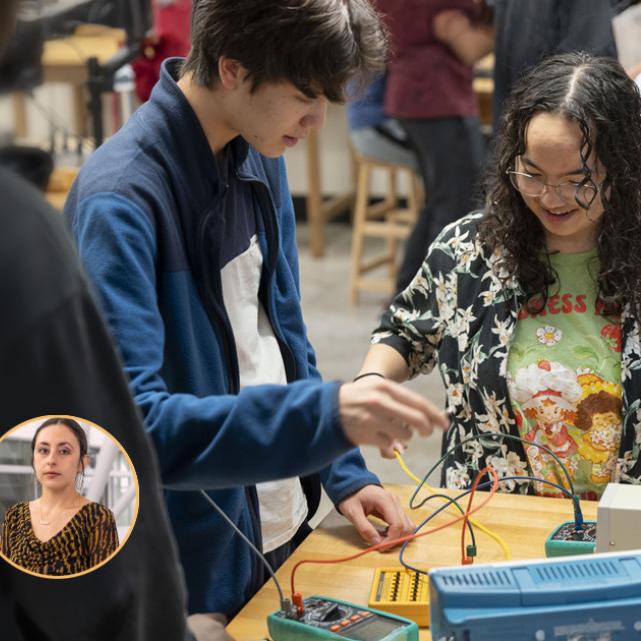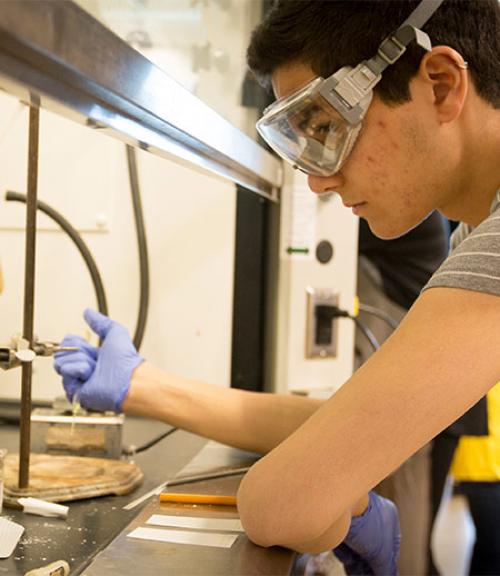NSF funds two discipline-based education research projects
The National Science Foundation has funded two discipline-based education research (DBER) projects in the College of Arts & Sciences, contributing to Cornell’s growing DBER profile. Both grants are about $300,000 and three years in length.
The first project, “Equity in Undergraduate Physics Labs,” builds on work originally funded by the President's Council of Cornell Women, and is led by Natasha Holmes, Ann S. Bowers Assistant Professor of physics. The project studies how fairness in group interactions during laboratory classes influences students' decisions to persist in physics.
“Despite extensive efforts to improve STEM education, many students who declare a STEM major at the start of their degrees do not continue through graduation,” said Holmes. “And while there are many complex and intertwined variables involved, it’s important to note that poor grades are not the primary driver of students abandoning STEM studies.”
Holmes and her team will use targeted interviews and broad surveys to probe students’ views about what it means to do physics, who can do it, and whether they plan to continue to do it, while also drawing connections to their in-lab group work experiences. They will evaluate interactions between students’ self-efficacy, sense of belonging, science identity, and sense of agency, and their experiences in lab. The work will culminate in a set of implications and recommendations for how lab instruction can affect student persistence in STEM, with a particular focus on populations of students from groups historically excluded in physics.
The second grant, “Development of the Biology Lab Inventory of Critical Thinking for Ecology Assessment Instrument,” will be led by Michelle Smith, associate professor of ecology and evolutionary biology, with Holmes as co-principle investigator. The project builds on two previous NSF-funded research studies conducted separately by Smith and Holmes.
The project will develop a new assessment instrument, the “Biology Lab Inventory of Critical thinking for Ecology” (Eco-BLIC), which biology instructors can use to measure undergraduate students' critical thinking skills in the context of ecology data collected from field settings.
“Much of the education research to date has focused on how students learn from lectures and recitations, with very little attention paid to the critical thinking learning outcomes that are often the goal of laboratory and field courses,” said Holmes. “This unequal balance in the research leaves many open questions: what are students learning from these courses? How can we best measure what they learn – and what could they be learning?”
Because authentic ecology lab and field courses can be some of the most resource intensive components of a departmental curriculum, the lack of research to evaluate what critical thinking skills students are learning in these courses have contributed to their decline at the undergraduate level. The Eco-BLIC will enable biology departments to be able to measure potential growth in students’ critical thinking skills, which can then help them determine how to best argue for and use declining resources to enhance their ecology laboratory and field-based offerings.






